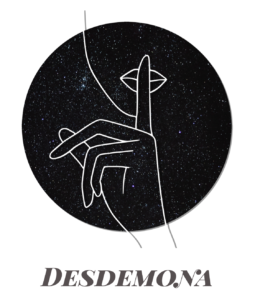Yesterday I had a meeting with the sponsors of my Shakespeare Company on my college campus. We produce one large scale Shakespeare production every year, with the intended purpose of trying to make the works of Shakespeare something that everyone can see value in. We have produced a site specific production of Hamlet in a museum, a radically queer production of A Midsummer Nights Dream, and are about to start work on a movement heavy version of Macbeth set in a high school classroom. The meeting in question was about the subject for the play I would produce my senior year. That being, a modern adaptation of King Lear that deals with the themes of age, family, madness, and the intersection of those within the meta-text of the piece. That lead to a much longer conversation about why Shakespeare’s plays are constantly being used to inspire new pieces of Theatre.
The Power of a Shakespeare Adaptation by MC Hedrick
I am asked frequently why I work the works of Shakespeare so frequently. Both directing for my own Company, as well as acting and working as a Dramaturge on productions directed by my friends and frequent collaborators. My answer always revolves around Phyllida Lloyd’s Shakespeare Trilogy at the Donmar Warehouse. Productions of Shakespeare’s Julius Caesar, Henry the Fourth, and The Tempest all set in a all women’s prison. Each highlighted the themes of the original play in fascinating ways by infusing the psychological implications of long term incarceration. Shakespeare can be used as a vehicle for discussions that audiences might not be interested in hearing about in the theatre if it wasn’t slipped into Shakespeare. I’ve used Shakespeare as a tool for change in my productions.
Shakespeare’s works have been used by playwrights in a similar way for centuries. Orson Wells wrote Caesar and used the groundwork of Shakespeare’s Julius Caesar to speak about the spreading Fascism in Europe in America years before America’s entrance into World War Two. Cahoot’s Macbeth by Tom Stoppard tells the story of Macbeth while also speaking theme of artistic dissent in a nation that silences the voices of those who don’t hold power. Desdemona by Toni Morrison, which is being produced by DSF right now for their Winter Festival, takes the character of Desdemona from Shakespeare’s Othello and focuses a narrative around her. Morrison uses the themes of that base work to speak about racism, violence, and how theses infect our relationships. Desdemona handles these themes better than any play I have ever worked on, and that is in large part because of its ability to use what Shakespeare already wrote and comment on that rather than having to establish the world of the play before introducing these themes.
If you are interested in seeing this brilliant blending of Shakespeare and modern themes, you can grab a free ticket to DDF’s production of Desdemona. Streaming Friday, December 11 @ 6:00 PM PST and Sunday, December 13 @ 2:00 PM PST. Get tickets at: https://www.eventbrite.com/e/desdemona-by-toni-morrison-tickets-131427492167